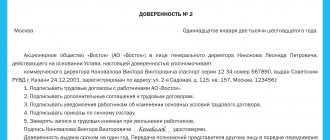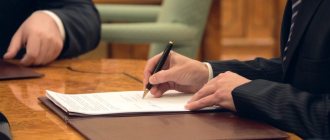Are rights deprived for non-payment of alimony?
According to the amendments made in 2015 to the Law “On Enforcement Proceedings” No. 229-FZ of October 2, 2007 (hereinafter referred to as Law No. 229-FZ), citizens who have arrears on alimony obligations may be subject to administrative liability in the form of temporary suspension from transport management. For convenience, this measure in everyday life is called deprivation of rights; this designation will also be used in the text.
Deprivation of rights applies not only to passenger cars, but also to:
- trucks;
- mopeds;
- motorcycles;
- tri- and quad bikes;
- self-propelled vehicles;
- boats and yachts;
- ships and aircraft.
As it turns out, this measure is bearing fruit. According to statistics, about 30% of alimony workers own certain vehicles or drive them on a professional basis. Therefore, the measure is effective, but grounds are required to deprive the person of the opportunity to drive for non-payment of alimony.
Note! Deprivation of a special right to drive should not be confused with the seizure of a vehicle that is owned by the debtor and is sold at auction in order to cover alimony debts.
How can you get your rights back after being deprived for debt?
Return of the right to drive a vehicle after the debtor has been restricted in it is possible after payment of the entire debt and presentation of supporting documents. All restrictions are lifted one day after confirmation of payment of the debt. Information will be sent to the traffic police that the debtor’s restrictions on driving the vehicle have been lifted.
Important! The bailiff is obliged to promptly apply the court decision and, if the decision is complied with, lift the restriction.
But most often, bailiffs are in no hurry to fulfill their direct duties and the restriction is lifted for quite a long time. Keep this in mind and it is better to pay your debts rather than bring everything to the point of temporary removal from driving the vehicle. Restoring your rights is much more troublesome.
Period for restoration of rights
- Within no more than one day after the debt is fully repaid and supporting documents are provided to the bailiff, the restriction is lifted.
- The information is transmitted to the traffic police, where appropriate changes are made to the database.
- According to the law, the driver has the right to drive the vehicle the very next day.
However, in practice, deadlines for lifting restrictions are often violated. The bailiff claims that he passed on the information, but the traffic police officers say the opposite.
Therefore, it is correct to periodically check the debt and not avoid receiving official letters.
- Bailiffs can limit the defendant’s right to drive a vehicle, but not deprive him of his driver’s license. Only traffic police officers can withdraw rights; deprivation of rights is possible only by court decision.
- The restrictive measure is aimed at fulfilling requirements related to the payment of mandatory payments for the maintenance of a minor (alimony), fines for violating traffic rules, and compensation for material and moral damage. The amount of claims must exceed 10 thousand rubles.
- The restriction does not apply in case of debt on loans. Banks therefore cannot force the borrower to repay the debt.
- In relation to that specified in Art. 67.1p 4 FZ-229 category of citizens the restriction cannot be applied.
- To avoid a temporary ban on driving a vehicle, you need to pay fines in a timely manner and periodically check for debt on the basis.
Who can have their driver's license revoked?
Both an individual who is an individual entrepreneur and one who is not can be deprived of the opportunity to drive transport.
A driver's license is revoked when:
- the debt is equal to or more than 10 thousand rubles;
- the defaulter on alimony obligations calculated on the basis of a court decision or a notarized agreement was informed of the existing debt;
- he was notified that it needed to be repaid, but this was not done by him;
- there is no prohibition preventing deprivation of rights.
The restriction on the use of transport is valid until the requirements are fulfilled in full or grounds arise for their cancellation.
For what debts can your driver's license be revoked?
Article 67.1 part 2. If a debtor-citizen or a debtor who is an individual entrepreneur fails to fulfill, within the period established for voluntary execution, without good reason, the requirements contained in the writ of execution for the collection of alimony, compensation for damage caused to health, compensation for damage in connection with the death of the breadwinner, property damage and (or) moral harm caused by a crime, claims of a non-property nature related to raising children, as well as claims for the collection of an administrative fine imposed for violating the procedure for using a special right, the bailiff has the right, at the request of the claimant or on his own initiative, to issue a resolution on a temporary restriction on the debtor’s use of a special right.
As you can see, the law clearly describes the full list of debts for which rights can be deprived. Therefore, they have no right to deprive a driver’s license for debts on utility bills, housing and communal services (electricity, water, heating), . Remember this!
When a debtor cannot be deprived of his rights
There are a number of restrictions according to which a debtor cannot be deprived of his driver's license. As stated in Part 4 of Article 67.1 of Law No. 229-FZ, these include the following:
- The alimony debt is below the amount of 10 thousand rubles.
- There is a properly executed installment plan or deferment of payments.
- Restricting the ability to drive will deprive a person of income. For example, this applies to taxi drivers or truck drivers.
- The debtor and his family members live in a place remote from the city and can leave there only with the help of personal transport.
- The alimony payer is disabled, and therefore he uses a vehicle.
- The alimony provider provides for a child who is disabled, an adult disabled person of group I, II.
In order not to complicate the situation, it is recommended to take care of the availability of documents confirming the specified grounds for exemption from administrative liability. It could be:
- a certificate issued by the bailiff about the amount of debt not reaching 10 thousand rubles;
- court decision on installment or deferment of payments;
- ITU certificate confirming disability;
- certificate of state registration of an individual entrepreneur, extract from the Unified State Register of Individual Entrepreneurs about his types of activities, license;
- work book, contract with the employer, civil agreement, certificate of employment.
If the restriction was nevertheless imposed without reason, it is necessary to write an application to the FSSP about its removal and attach a supporting document to it.
Child support debt
Mainly, Article 67.1 of Federal Law No. 229-FZ “On Enforcement Proceedings” is aimed at resolving the issue of persistent defaulters of social debts, in particular alimony arrears. After all, it is difficult to find measures to influence a person who does not want to pay his child the amount required by law. The inability to drive a car will be a serious circumstance to make the debtor think about it and start paying the debt. For many mothers raising children alone, this law is their last hope for money. It is still too early to talk about the effectiveness of this effect. After all, this is a last resort measure that is not used often.
Temporary deprivation of a driver's license for debts in 2021 applies for the period of time until debt obligations are fully fulfilled. When the rights are suspended, a defaulter who does not want or for some reason cannot pay his debt is deprived of the opportunity to drive for an indefinite period.
Procedure
The document defining the amount, terms and procedure for paying alimony comes in two types - an agreement or a writ of execution, so the procedure will depend on the availability of one of them.
Actions if there is an agreement
A document obliging the payment of alimony does not always come from the courts or is issued on the basis of a judge’s decision. Such documents include an agreement: it is concluded between the parent, who is obliged to pay money for the maintenance of the child, and the second parent or other representative of the minor.
When the terms of the agreement are violated, the person who is entitled to alimony has the opportunity to go to court with a claim. It must contain a request for deprivation of rights due to non-payment of debt, indicating the amount and period of overdue obligations. A bailiff can also go to court with a claim.
If there is a writ of execution
If there is a writ of execution for which there is a debt, the bailiff can decide to deprive the rights independently, without recourse to the courts. The law allows the bailiff to do this both after receiving the claimant’s application and on his own initiative. Thus:
- if there is an agreement, you need to go to court - either independently by filing a claim, or through a bailiff by writing a statement to him;
- If you have a writ of execution, you will not need to go to court - only an application to the FSSP.
Moreover, in the second case, lawyers advise not to wait until the bailiff independently makes a decision on deprivation of rights for non-payment of alimony - it is better to “stimulate” him by submitting a request for this.
How to proceed further will be outlined below.
The procedure for applying the law on deprivation of rights
Before deprivation of rights for debts in 2021, bailiffs contact the debtor and insist on paying off the debt. At this stage, you can easily avoid the introduction of restrictive measures - show your readiness to fulfill your obligations.
If in advance before the resolution comes into force, you pay not the entire debt, but at least only part of it, then such actions will indicate a person as a person who is ready to pay the debt without resorting to extreme measures. Employees of the federal enforcement service will no longer have grounds, and there will be no reasons, to apply this law to a citizen.
If the debtor does not show a desire to voluntarily get rid of his debt, then according to federal law in 2021, bailiffs are given the right to make a decision by which restrictions are imposed on a citizen on the right to use a car.
You must understand that according to the law, bailiffs do not have the ability to deprive a driver’s license; it turns out that they cannot take away a license. Bailiffs only impose temporary restrictions on their use.
If the demand for which enforcement proceedings are being conducted is not a court document or is not used in accordance with a court order, then the bailiff himself or a representative of the claimant has the opportunity to go to court with a statement to establish such a measure of influence on a person as a temporary restriction on the use of rights. After a court ruling, based on the law, the bailiffs have the opportunity to enforce such a measure of influence on the defaulter.
The decree that is handed to the debtor provides detailed explanations about the need to pay the entire amount of the debt, and the inability to drive a car or other vehicle until the day the decree is canceled. In 2021, the bailiff is personally required by law to serve the debtor with a notice of suspension of the driver's license for an indefinite period.
There is no reason to panic right away. After delivering the document, the driver has 5 legal days to quickly resolve the issue and pay the debt. After this, he presents the payment receipt to the bailiff, and a day later the rights come into effect again.
Resolution on deprivation of the debtor's rights
The resolution includes:
- an order to hand over a driver’s license to the FSSP within five days if the debt is not repaid during this time;
- clarification of the obligation to comply with driving restrictions;
- warning of administrative liability for failure to comply with the order;
- instructions regarding the fulfillment of obligations;
- information about the need to repay them;
- an offer to submit a document confirming the transfer of debt;
- designation of the period within which the debt must be repaid.
The document is approved by the senior bailiff or the person who replaces him. No later than the next day after acceptance, copies of it are transferred to:
- to the alimony payer in person, by mail or via the Internet;
- their recipient;
- to units of the Ministry of Internal Affairs, the State Traffic Safety Inspectorate or other organizations, depending on the type of vehicle.
When the requirements specified in the resolution are fulfilled or cancelled, the bailiff passes another resolution to lift the restriction. This is done the next day after the debt is paid or the requirements are cancelled, and also requires approval by the senior bailiff or his deputy.
Copies of a resolution or document canceling claims against the debtor (a court decision or a resolution of a person holding a higher position in the FSSP) are sent to the above addressees immediately.
Is it possible to appeal a decision to revoke a driver's license?
The driver, if desired, can file a complaint against the actions of the bailiff to a higher bailiff or to the court. You must file a complaint with the following authorities in order of priority:
- senior bailiff;
- head of department.
Scheme for filing a complaint:
- Cap indicating senior bailiff;
- Author of the complaint (full name, residential address);
- The circumstances under which an illegal, in the author’s opinion, decision was made;
- Evidence (such as bank receipts or other official documents);
- Please cancel the decision (indicate information about who made it and when).
Important: the driver has 10 days after the decision is made to file a complaint.
If the end of the period falls on a weekend or holiday, the time is extended until the first working day. When appealing a decision within the deadline, before the decision of the supervisory commission, the driver can drive. If the supervisory authority confirms the guilty verdict, the driver will have to give up this right. Or appeal the decision further, but in court.
Video on the topic of deprivation of a driver's license by police officers
Deadlines and method of transferring a driver's license
In accordance with Articles 32.6, 32.7 of the Administrative Code, the decision on deprivation of rights is executed by seizure and storage during the entire period of deprivation of the certificate. If the documents are not required, they are stored for three years and then destroyed. The period of deprivation of rights begins on the day the resolution comes into force. A person who has been deprived of his rights must hand them over within 3 working days to the appropriate authority, and if they are lost, report it within the same period.
The transfer of the certificate is formalized by an act, one copy of which is kept by the bailiff, the second is handed over. If the debtor, in violation of the order, does not surrender his rights, a break occurs in the period of deprivation and its duration continues from the day when the certificate was surrendered or forcibly withdrawn.
Note! Passing a driver's license does not relieve you from the obligation to transfer money to pay off child support obligations.
What is the fine for a driver deprived of his license due to debts if he is driving a vehicle?
The Federal Law on the deprivation of a driver's license for debt actually implies a restriction, not a deprivation of rights. This means that the driver still has the right to drive the vehicle, but he cannot use it during this period of time.
In the usual case, if the vehicle is driven by a person deprived of rights, a fine of 30 thousand rubles is provided. It is also possible to arrest the driver for a period of up to fifteen days. Another alternative is forced labor lasting up to two hundred hours.
If the case concerns debtors, then in this case deprivation of this right or forced labor is provided. Terms – up to one year and up to fifty hours, respectively.
What are the consequences for the defendant if he fails to comply with the instructions?
When a debtor violates the legislation on enforcement proceedings in the form of ignoring the demands of the bailiff, he, on the basis of the provisions of Art. 17.14 of the Code of Administrative Offenses is subject to penalties in the following amounts:
- for individuals – 1-2.5 thousand rubles;
- for individual entrepreneurs – 10-20 thousand rubles.
According to the rules of Art. 17.17, in case of failure to comply with the requirement to suspend the right to use a vehicle, the violator may be:
- sent to compulsory work for a period of up to 50 hours;
- deprived of rights for a period of up to 1 year.
According to the instructions of Art. 12.7, if a person gets behind the wheel without having the right to do so, he will be fined in the amount of 5 to 15 thousand rubles. The exception is training driving.
If the vehicle is driven by a person deprived of his license, he faces one of three penalties:
- a fine of 30 thousand rubles;
- arrest lasting up to 15 days;
- compulsory work assigned for 100-200 hours.
A person who has transferred control of transport to someone who does not have the right to do so or has been deprived of it faces a fine of 30 thousand rubles.
Do bailiffs have the right to take away a driver’s license (driver’s license) from a debtor?
Can bailiffs deprive a debtor of a driver’s license?
Yes, indeed, in the legislation on enforcement proceedings there is a certain measure of punishment, or it would be better to say a measure of influence on the debtor, and this measure involves restricting the debtor from using a special right. A special right means a restriction on the use of a driver’s license and, accordingly, a restriction on the right to drive a vehicle.
This is a temporary restriction, which is expressed in the suspension of the driver’s license, and until the debtor takes measures to cancel this restriction, he has no right to drive. In order to cancel the restrictions, it is necessary to fulfill the bailiff’s demands based on the previously issued writ of execution (writ of execution, court order, agreement to pay alimony, etc.).
But as many people who do not understand the law say that bailiffs deprive rights (driver’s license), they are mistaken and this can be understood by referring to Article 67.1 of the law “On Enforcement Proceedings”, which clearly states that this sanction is nothing more than a restriction, and not a full-fledged deprivation . A driver's license can only be revoked in court, and all reasons for deprivation of a driver's license are described in the Code of Administrative Offences. The bailiff only restricts the debtor's right to control.
How is the right to drive a vehicle restricted?
First of all, the bailiff must begin the process of enforcement proceedings, since if enforcement proceedings are not initiated, then no actions to collect the debt and application of enforcement measures to the debtor will be possible.
Based on Article 30 of the Law on Enforcement Proceedings, the bailiff initiates enforcement proceedings on the basis of a writ of execution submitted to the bailiff service, which, as I said above, is not always just a writ of execution. Also attached to the writ of execution is a statement from the claimant; the statement may contain a request to seize the debtor’s property, a ban on traveling abroad, and the very notorious restriction of the right to drive a vehicle.
After receiving the writ of execution and the application, the bailiff issues a resolution to initiate enforcement proceedings against the debtor, and from that moment the bailiff can apply to the debtor any methods of debt collection and influence on the debtor that are not prohibited by law.
But the bailiff must warn the debtor that enforcement proceedings have been initiated against him and send the debtor a copy of the resolution and give the debtor 5 days to voluntarily satisfy the demands, that is, repay the debt. If the debtor does not comply with the bailiff’s demands to repay the debt within the allotted 5 days, then the bailiff begins to take measures to forcefully collect the debt and apply the above measures, including restrictions on traveling abroad, seizure of property and restrictions on driving.
In order to restrict the debtor’s right to drive a vehicle, the bailiff issues a corresponding resolution and sends it to the traffic police. The traffic police, in turn, having received this resolution, is obliged to make a note that a particular citizen is limited in the right to drive a vehicle on the basis of a specific resolution of the bailiff. It is also worth noting that one copy of such a resolution is sent to the debtor himself.
If the debtor, in turn, ignores this restriction and continues to drive the car during the period of restriction, then such an action threatens with administrative liability under Article 17.17 of the Code of Administrative Offenses of the Russian Federation. This article provides for the following sanctions, these are compulsory work for up to 50 hours, or a full deprivation of a driver’s license for up to 1 year, and here there is a real deprivation through the court, this is not a limitation and in order to later get your license back, you will have to surrender exam on knowledge of traffic rules.
For what debts do bailiffs restrict the right to drive a vehicle?
-Alimony;
-Compensation for damage (property), including moral damage caused by the crime;
-Compensation for damage caused to health;
-Compensation for damage caused by the death of the breadwinner;
- Non-property requirements related to raising children;
-Demand for the collection of an administrative fine imposed for violation of the procedure for using a special right.
Who cannot be restricted in the right to drive a vehicle?
1.If the restriction deprives the debtor of the main source of livelihood;
2. When the use of a vehicle for the debtor and his family members living with him is the only means of ensuring livelihoods, taking into account transport accessibility to the place of permanent residence;
3. If the debtor uses a vehicle due to a disability or the dependent person is a person recognized as a disabled person of group 1 or 2, or a disabled child;
4.If the amount of debt does not exceed 30,000 rubles;
5. When the debtor is granted an installment plan or deferment in fulfilling the requirements of the writ of execution.
If your right to drive a vehicle is limited and the above-mentioned circumstances exist, then you can appeal the actions of the bailiff both in the order of subordination and in court.
The restriction on the right to drive a vehicle is lifted immediately after the requirements laid down in the executive document are met, that is, full payment of the debt.
If you have any questions, you can always consult our bailiff lawyer, he will answer any questions and advise you on how to proceed or provide qualified legal assistance.
I thank the legal defense center “Leader” for writing the article
source yurist174.ru
Conditions for returning a driver's license
As mentioned above, deprivation of a driver’s license for non-payment of alimony does not in itself exempt from payment of obligations. Rights can be returned only after the alimony debt has been fully repaid. A document evidencing payment may be:
- receipt;
- statement from the bank;
- receipt;
- check.
An application is submitted to the bailiff, to which a copy of the payment document is attached (a sample application can be obtained from the FSSP office or downloaded here). Documents are sent by mail or presented in person. It is possible to make a payment while at the FSSP.
Upon payment, an audit is carried out, which lasts no more than one day. Then a decision is made to lift the ban on driving. Its copies are sent to the alimony payer and to the Ministry of Internal Affairs or the State Traffic Safety Inspectorate, which make changes to the database.
But new information is not always entered promptly, so it is better to have the relevant resolution with you in order to avoid misunderstandings on the roads.
Is it possible to deprive a person of his rights in absentia for debts?
Understanding for what debts a driver’s license can be deprived, the debtor should also know that deprivation is not the first punishment. It all starts with the receipt of a demand from bailiffs to pay the debt.
Important! The bailiff will warn the debtor that enforcement proceedings are being initiated and, in accordance with Federal law, if he refuses to fulfill his obligations, a ban on driving will be imposed.
According to the Federal Law, there is the following procedure in accordance with which the debtor is considered notified:
- upon refusal to receive a summons or other notices;
- failure to appear to receive a summons or other notice after receiving a notice at his address;
- if a summons or other notice was sent to the last known address of residence of the person participating in the enforcement proceedings, or to the address that was communicated to the bailiff in writing or electronically;
- if a notice signed by a bailiff is sent in electronic format to the addressee in accordance with the procedures established by the Government of the Russian Federation.
For example, a driver, understanding for what debts his driver's license is revoked, receives a notification of a registered letter, but does not appear at the post office. In this case, he is still considered notified and may be limited in the right to drive a car or other vehicle.
How can I return my ID? Do I need to take exams?
In order to get your driver's license back you must:
- Fully repay all debts, including penalties (if any).
- Provide the bailiff with a copy of the payment receipt so that he can remove the restrictions by signing the appropriate order.
Since the law provides for a time limit, retaking the exams to obtain a license is not required.
There are cases when, after the deprivation of rights has been issued, circumstances arise in which you cannot be deprived of the right to drive. In this case, you need to contact the executive body by filling out an application and attaching supporting documents. The bailiff will be required to hand over the certificate and also remove the relevant information from the database.







